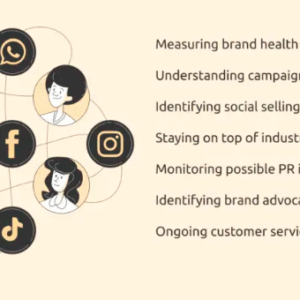Introduction: Why this matters and why you should care
Okay, picture this: your company’s trade license is up for renewal, and the regulators decide to show up like an uninvited guest right when you least expect it. Ring any bells? I’ve seen this happen more times than I’d like to admit, and yes, it’s a headache—one that you can manage if you act smart. Handling license renewal during investigation or inspection is stressful, but you don’t have to spiral into panic. You can stay calm, follow a legal-safe process, and still renew business license under investigation without unintentionally making things worse. I’m speaking from experience and from working alongside companies that navigated this successfully; you’ll want to avoid impulsive moves that make regulators suspicious or that raise compliance flags. So how do you approach renewing license during government investigation without tripping over legal pitfalls? First, you prepare your documentation, align with counsel, and keep communication tight and transparent with the authority. Second, you prioritize license renewal compliance under investigation by proactively demonstrating cooperation and remediation steps. Third, you avoid common mistakes like submitting incomplete forms, ignoring notices, or trying to “quietly” renew trade license under inspection without disclosing the probe. Sounds like a lot? It is, but I’ll walk you through the legal-safe license renewal process step by step, with real-world tactics you can apply right away. FYI, regulators usually respect clarity and cooperation; they don’t necessarily want to shut you down if you show genuine intent to comply. Stick with me and by the end you’ll know how to approach urgent license renewal under investigation with confidence, what documents to prioritize, what to say (and what to avoid), and how to time legal advice so it helps rather than hinders the renewal.
First moves — immediate actions when renewal meets inspection
You just got the notice: renewal due, and your company is under inspection. What do you do first? Don’t sprint to the counter; breathe, gather, and plan. Immediate actions shape how regulators perceive you. Start by organizing core documents: the current trade license, prior renewal receipts, financial statements for the relevant period, compliance certificates, employment records, and any correspondence with the inspecting authority. If you’re handling license renewal during investigation, you must treat documentation like evidence of intent. Make a chronological file of inspections, internal corrective actions, and communications. Next, notify your internal stakeholders—legal, compliance, finance, and operations—so everyone speaks the same language. One voice beats a dozen conflicting ones. If your company has external counsel, loop them in. If not, seek counsel experienced in administrative and regulatory matters; strategic legal advice can prevent blunt mistakes like premature admissions or poorly worded letters that regulators may interpret as evasive. You must also decide whether to inform the regulator about your renewal application proactively. In many jurisdictions, transparency helps: file your renewal application while simultaneously disclosing the inspection status and offering cooperation. That demonstrates good faith and often accelerates procedural handling. If the inspection is adversarial—think seizures or criminal probes—consult counsel before filing anything that could be used against you. Finally, set an internal timeline with measurable checkpoints: documents gathered, application submitted, meetings scheduled, counsel briefed. Treat this as a project with clear deliverables, not an afterthought. That disciplined approach makes a huge difference when you attempt to renew business license under investigation, and it signals to authorities that you’re serious about compliance.
Documentation and evidence — what to collect and how to present it
Let’s be blunt: if you can’t prove you met requirements, officials assume you didn’t. For license renewal when company inspected, documentation forms the backbone of your case. Prioritize documents that directly link to renewal criteria: proof of business address, lease agreements, utility bills, tax certificates, social insurance or payroll records, quality control logs, safety certifications, and copies of prior licenses or permits. If the inspection flagged issues, prepare corrective action reports with dates, responsible persons, and evidence of fixes—photos, invoices for repairs, training attendance sheets. Create a clean, indexed binder or digital folder—call it your “renewal pack”—and include a cover letter that summarizes the contents and explains any gaps. Keep your narrative simple and factual. Regulators appreciate clarity; long-winded excuses do not help. When renewing license during government investigation, also include communication logs: dates you responded to notices, who you spoke to, and copies of written replies. If you obtained external expert reports (e.g., safety audits, accounting reviews), attach them and highlight recommendations you implemented. Use bullet-proof organization: tabs for legal, financial, operational, and corrective actions. If items are pending, state the expected completion date and the reason for delay. If the inspection concerns compliance with specific statutes or regulations, include your compliance matrix: regulation, requirement, current status, action taken, next steps. That matrix helps inspectors quickly see your remediation. Keep originals secure and provide certified copies where required. Avoid fabricating or doctoring documents—those are legal minefields. Being honest yet thorough with your documentation increases the chance you can renew trade license under inspection on a legal-safe footing.
Communication strategy — who says what, when, and how
Talking to regulators is an art. Say the wrong line and you escalate an issue; say the right line and you keep control. When you’re handling license renewal during investigation, treat every interaction as semi-formal: concise, documented, and respectful. Assign a single point of contact (SPOC) for the regulator so you avoid multiple messages that contradict each other. Train that SPOC on what to disclose—facts only, no speculation—and how to log conversations. Draft standardized responses for common queries, and keep counsel in the loop for any substantive admissions. If the regulator requests documents, comply promptly but don’t overload them with irrelevant material; highlight the exact documents that meet their request. Use written confirmations after verbal exchanges: “As discussed on [date], attached are the documents; please confirm receipt.” That creates a paper trail useful for license renewal compliance under investigation. Decide whether to request a formal meeting; sometimes face-to-face (or virtual) clarifications speed resolution, other times they invite tougher scrutiny—choose wisely. If you choose to be proactive, send a formal letter with the renewal application that candidly explains the status of the inspection and lists remedial steps taken. If you instead prefer a defensive posture because the probe is criminal or serious, let counsel manage interactions and file only what’s legally required. Remember, silence isn’t always golden; it can look like obstruction. Aim for “cooperative but cautious.” That phrase will save you headaches and help when you seek to renew license during regulatory probe because authorities usually favor companies demonstrating cooperation and remediation.
Legal steps — counsel, disclosures, and filings you should consider
You don’t have to be a lawyer, but you should definitely have one when dealing with license renewal mid-probe. Company license renewal legal steps hinge on the probe’s nature. For administrative inspections, you can often file your renewal application with an explanatory letter and attach corrective action plans. For criminal or enforcement investigations, you must involve counsel before submitting statements or extra documents. Counsel helps you assess disclosure obligations, privilege claims, and whether to invoke legal protections. Key legal steps include: confirming statutory renewal deadlines and extensions, checking if the regulator can withhold renewal due to pending findings, assessing whether the inspection triggers automatic suspension clauses, and preparing any necessary affidavits or sworn statements. Counsel also negotiates timelines with the regulator; sometimes authorities will accept post-renewal conditions or compliance bonds. If local law permits, consider offering undertakings or performance bonds that demonstrate commitment to compliance while allowing business continuity. Document any regulatory agreements in writing and get clear terms about future inspections or conditions. Also, confirm whether any admissions or reports you submit could be used in criminal proceedings; if they can be, counsel will advise alternative approaches. When you’re trying to renewing license during government investigation, these legal steps protect you from inadvertent admissions and help craft a renewal strategy that aligns with your defense. Don’t cheap out on legal advice here—this is not the time to wing it.
Operational fixes — quick wins that regulators notice
Regulators respond well to visible, sensible fixes. If inspectors flagged issues, prioritize operational changes that you can implement quickly and document immediately. Think of these as urgent license renewal under investigation actions that demonstrate responsibility. Quick wins include fixing safety hazards, updating records, conducting a refresher training session for staff, implementing basic quality control checks, or temporarily correcting a labeling or storage issue. For each fix, create evidence: time-stamped photos, attendance lists for training, purchase invoices, or updated SOPs. Then include these in your renewal application as proof of remediation. Focus on high-impact, low-effort tasks that address the inspector’s concerns directly; don’t waste resources on cosmetic changes that don’t matter legally. Also, appoint accountable personnel to maintain the fixes and document ongoing compliance. If you can show that a specific problem was systemic and that you corrected it with a clear plan, regulators often accept conditional renewals or allow you to continue operations while you complete more complex remediation. These operational steps matter because they bridge the gap between simply renewing license during government investigation on paper and actually demonstrating the safety and compliance regulators require in practice. Small, documented actions can transform a sceptical inspector into a cooperative partner.
Timing and tactical filing — when to push the renewal and when to pause
Timing matters more than people think. If your renewal falls due during an inspection, you face two choices: file immediately with full disclosure or pause and coordinate with counsel. Which choice you make depends on the probe’s severity. For routine administrative inspections, renew business license under investigation by filing on time and attaching an explanatory note; this shows you respect legal deadlines and remain cooperative. For serious criminal probes, pause until counsel advises; filing blindly could expose you to harmful admissions. Look for statutory extensions or emergency provisions that temporarily protect licenses during investigations. Some jurisdictions allow conditional renewals with compliance milestones; others require clean slates. Ask regulators, through counsel, whether they accept conditional renewals or whether they will withhold renewal pending findings. If the regulator signals a technical hold that does not mean outright refusal, you can still apply and request interim measures to keep essential operations running. Always document the regulator’s responses and seek written confirmation for any arrangements. When in doubt, prioritize legal strategy over procedural speed—rushing can create vulnerabilities in your legal-safe license renewal process. But don’t use caution as an excuse for inaction. Active management of timing, combined with documented cooperation, usually yields the best outcome.
Negotiation and remediation agreements — how to secure conditional approvals
When the inspection finds problems but not criminal wrongdoing, you can often negotiate remediation agreements that allow renewal under conditions. These agreements can include timelines for fixes, third-party audits, or reporting obligations. To secure a conditional approval, present a clear remediation plan with milestones, accountability, and evidence of resources to complete fixes. Offer reasonable deadlines and real proof—signed contracts with vendors, scheduled audit dates, and budget allocations. If regulators worry about financial capacity, offer guarantees or escrow arrangements—when permitted by law—to ensure remediation funds exist. Use the remediation plan to show that you’re not just patching problems but addressing root causes; propose independent monitoring if needed. Insist on written agreements that state the terms of conditional renewal, including the consequences of breach and the method for dispute resolution. With a signed remediation agreement, you improve your chances of a positive renewal decision while keeping operations alive. This approach works well for license renewal compliance under investigation because it transforms a regulatory risk into a structured corrective action path that both parties can monitor and enforce.


